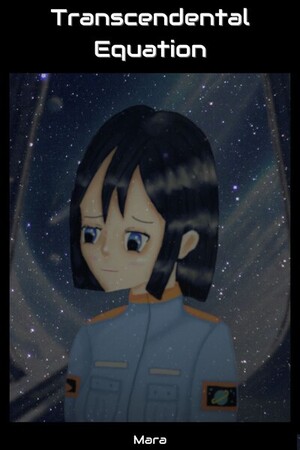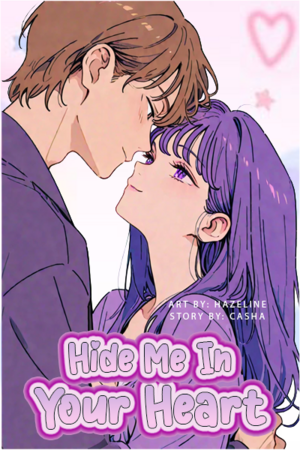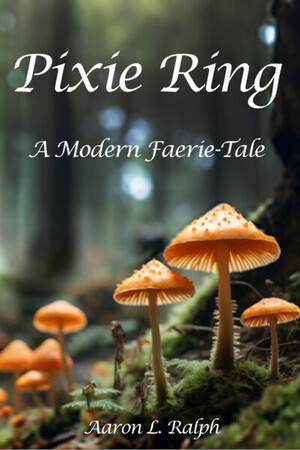Chapter 24:
Plays of Light
The Mirror’s Soul
The days passed, paced by Isao's teaching and Lucille's quiet experimentation. He had given her a small Fujifilm X-T30ii, a lightweight camera with a retro design. She adapted to it with unexpected ease.
"The mistake beginners make," Isao explained as he adjusted the aperture on Lucille's camera, "is thinking that photography shows what exists. True photography reveals what the ordinary eye cannot see."
They were sitting on the steps of a secondary temple in Kiyomizu-dera at dawn, as the slanted light turned the varnished wood to liquid gold. The first tourists wouldn’t arrive for another hour.
"Look at that woman sweeping," he continued, pointing to an old lady in a dark kimono. "Don’t photograph what she’s doing — photograph what she represents."
Lucille observed for a long while. The curve of her back, her gnarled hands, the regularity of her gestures. Suddenly, she saw beyond it — daily devotion, the dignity of humble work, time flowing like fallen leaves under the broom.
The shutter click was almost silent. Isao smiled as he saw the result.
"You’re beginning to understand," he said simply. "Photography is meditation."
She had an almost innate instinct for capturing the soul of places and people. Lacquered wood temples, alleys lined with lanterns, fleeting faces — everything passed through her lens with a strange gentleness. Kyoto, through her eye, seemed to vibrate between two eras. Perhaps it was this dissonance within her, this way of seeing the present as an echo of the past.
Isao watched her at work. Her wonder was contagious. He remembered his own beginnings, the raw fascination with the frozen image. He pressed his shutter, trying — in vain — to feel even a spark of the thrill he once felt before beauty.
One evening, as he reviewed a series of photos she had taken, something dawned on him. He would never regain his former vision. But through Lucille’s eyes, he felt a pleasure he thought lost.
The passion remained. Different, transformed, but still alive.
He was captivated by one photo: a maiko seen from behind, walking through a cobbled alley in Gion. The image was slightly off-center, her step suspended in fragile balance. To the left, a blurred lantern. To the right, a shadow — barely visible in a window's reflection — perhaps Lucille herself. There was a strange tension in the image, between grace and absence. As if something were trying to escape the frame at the very moment it was captured.
Another image struck him: an empty wooden bench, under a fine rain. At its base, a still-steaming can of tea. Nothing exceptional — except, perhaps, that feeling someone had just left, or was about to sit. Lucille knew how to capture absences that felt like presences.
A final photo showed a curtain slightly parted in a tea house. A hand resting on the fabric. Nothing more. It was blurry, fragile. Like a memory hesitant to return.
"This way of seeing..." he whispered, fascinated by the almost Moriyama-like composition. "These photos, Lucille... they deserve to be seen. They need to exist."
"I just have a good teacher," she replied timidly, blushing under the compliment.
"You're a true artist," Isao insisted. "These photos deserve to be exhibited. No — they must be."
Lucille remained silent, unsettled.
She who had been a model, a muse, an object shaped by others' gaze... Becoming the one who sees, who chooses, who creates — that role reversal moved her more than she cared to admit.
That night, Lucille sat on her futon, gazing at her photographs. She no longer recognized the woman she had been in Paris — that docile creature whose existence was limited to being looked at, framed, directed by others.
"To become the one who sees," she murmured, brushing her fingers over an image of a temple with dancing shadows. This new power almost frightened her, as if she had stolen something that wasn’t hers.
The night before, she had dreamed of holding her camera in front of a mirror, but instead of her reflection, the lens captured a blurry silhouette that wasn’t hers. That image haunted her like a fuzzy omen — a riddle she didn’t yet dare to face.
In this slow movement of emancipation, something invisible was shifting around her. Mizuki was preparing to move abroad.
A one-year contract in Paris, at the school in the Marais where she had once studied. A temporary post, but long enough to shake the fragile ground Lucille was only just beginning to build.
The day before her departure, they met in a small family-run café and pastry shop. A warm yellow light softened gestures and words. The scent of matcha tea mingled with that of polished wood. Distantly, one could hear the clink of dishes and the soft patter of rain on the windows. It was a transient place, but that day, everything felt suspended.
Mizuki was savoring a slice of yuzu tart, her eyes narrowed in quiet delight. Lucille had barely touched her hot chocolate. Holding her small Fuji camera in her hands, she said nothing, but her gaze never left Mizuki.
At one moment, without thinking, she pressed the shutter. Mizuki had just slightly turned her head to respond to something Isao had said.
The image appeared on the screen: blurred, soft, almost unreal. The movement had blurred the contours of her face, like a presence one never quite manages to grasp.
Lucille hesitated. A heavy, silent voice told her not to delete it like the others. It wasn’t just a portrait. It was... something more fragile. She knew that photography captures fragments of souls — but could she have imagined that souls might also capture the photographer ?
"I’ll miss you," Lucille had said, almost despite herself, as they found themselves alone for a moment in the café.
Mizuki had given her that enigmatic smile of hers, neither entirely warm nor truly distant.
"Paris is a city where you get lost to find yourself again," she said in Japanese, knowing Lucille wouldn’t understand it all. "Maybe you’ll find your path too, someday."
Lucille looked away. She felt her heart tighten. Part of her had wanted to ask her to stay. Another part knew that this silence, this departure, was also part of the journey. This elusive woman had been her first anchor in Kyoto. Their relationship, made of unspoken words and suspended gestures, remained undefined. More than a friendship, less than something else. A liminal space that perfectly reflected her current state.
"How can I know if I’m truly making progress ?" Lucille suddenly asked, seeking in Mizuki’s eyes a validation that Isao, in his kindness, might give too easily.
"When you stop asking yourself that question," Mizuki replied. "True art is born when the artist disappears behind the work."
In that advice, Lucille sensed both a photography lesson and an invitation to seek herself less — to surrender more.
Mizuki left soon after, waving a brief goodbye. There were no tears, no lingering words. Lucille, silent, watched her until the door closed. In that final glance Mizuki gave her, there was — perhaps — a kind of promise.
Later, alone, she reopened the image. She didn’t know why she had kept it.
Perhaps because she sensed something in it that she wasn’t ready to name.
She remembered what Isao had once told her, almost absentmindedly: Photography captures the ephemeral. It grants a form of eternity to the instant.
In that precise moment, she finally understood what it meant.
That evening, Isao reviewed a series of shots on his screen. A photo of Lucille, taken a few days earlier, caught his eye. In the background, a mirror.
It wasn’t the first time Isao had noticed something strange in Lucille’s photos. Fleeting presences, shadows that didn’t match any visible object. At first, he had blamed it on technical flaws — parasitic reflections, localized overexposure.
But the consistency of the phenomenon was starting to worry him. That silhouette that appeared, each time clearer, as if it were getting closer...
He hesitated to tell Lucille. The young woman seemed to finally be finding balance, a path. Should he frighten her ? Or was there something more tangible, perhaps more dangerous, in this presence that seemed to follow her ?
He decided to observe the phenomenon for a few more days before deciding.
He closed the laptop, his heart pounding. Convincing himself that stress and fatigue were playing tricks on him.
Yet something haunted him. It wasn’t a reflection. Nor a coincidence. It was a presence. And it seemed to know he was watching it.




Please sign in to leave a comment.